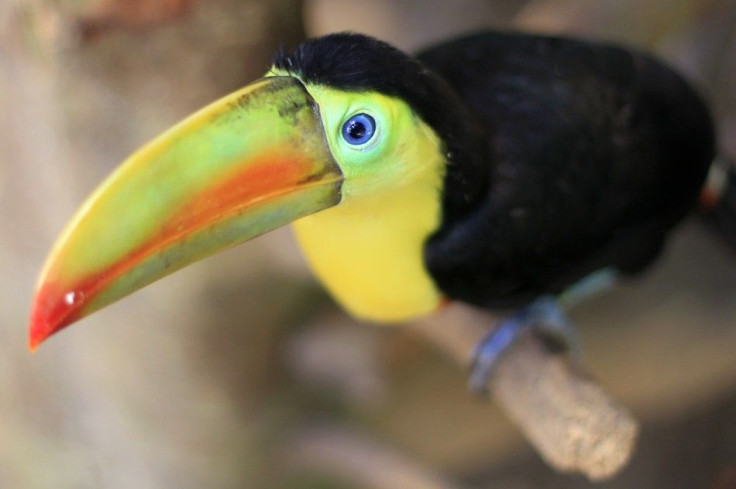Climate Change Could Cause 900 Tropical Bird Species to go Extinct

Up to 900 species of tropical birds could go extinct by the year 2100 because of climate change, according to a new study.
The expected average temperature increase of 6.3 degree Fahrenheit (3.5 degree Celsius) could extinguish hundreds of bird species that struggled to adapt to habitat loss and extreme weather events, the authors wrote.
Climate change would force birds towards the Earth's pole or to higher elevations where temperatures are cooler, according to the study authors. Researchers expect the pole-ward movement to crowd habitats, increase competition and spread disease.
The problem is most [species of birds] in the world are highly sedentary, Cagan Sekercioglu, lead author and assistant professor of biology at the University of Utah, told the BBC. The public perception is most birds are migratory and so climate change is not a problem for them.
However, out of 10,000 bird species, 6,100 live exclusively in the tropics, Sekercioglu said in a statement.
We know that quite a lot of tropical birds are not very good at dispersing so this could be a big issue in the future if the suitable climate moves several hundred kilometers or even tens of kilometers, Mike Crosby, senior conservation officer for the conservation group Birdlife International, who was not involved in the study, told BBC. Some of the birds might not be able to move their ranges sufficiently quickly in response to that.
Tropical birds already are shifting ranges, including the rainbow-billed toucans, according to the study. The bird moved from the Costa Rican lowlands to high-elevation forests where they compete for nest space with other birds.
Tropical birds are not the only ones at risk.
Coastal species are also vulnerable, Sekercioglu told the BBC. Coastal forest can be sensitive to salinity, and these forests can get hit harder by hurricanes and typhoons, and these events are also expected to increase.
Scientists expect heat waves, cold snaps, hurricanes and other extreme weather events to increase as temperatures increase, according to the Environmental Protection Agency.
Population increase may also play a role in bird extinctions. Land needed for agriculture and development could reduce the habitat of the birds even further, Sekercioglu said in a statement.
In some cases habitat loss [from agriculture and development] can increase bird extinctions caused by climate change by nearly 50 percent, he said.
The journal Biological Conservation published the study on Feb. 21.
Climate change doesn't just impact bird habitats. Melting Arctic ice reduced polar bear habitats, according to the EPA. The chief source of food for polar bears, seals, is also affected by the lack of ice, used by seals to give birth. As ice shrinks further, seals will leave the area and force the polar bear to go hungry, according to the EPA.
Climate change could lead to a change in fish ranges as well. As water temperatures change, fish such as tuna will spread towards more temperate regions, according to the EPA. The National Oceanic and Atmospheric Administration predicts that fish native to Alaskan fisheries will spread out as water temperatures warm further north.
Unless society reels in greenhouse gas emissions and reduces consumption of fossil fuels, we face the prospect of an out-of-control climate that will not only lead to enormous human suffering, but will also trigger the extinction of countless organisms, among which tropical birds will be but a fraction of the total, Sekercioglu said in a statement.
© Copyright IBTimes 2025. All rights reserved.





















